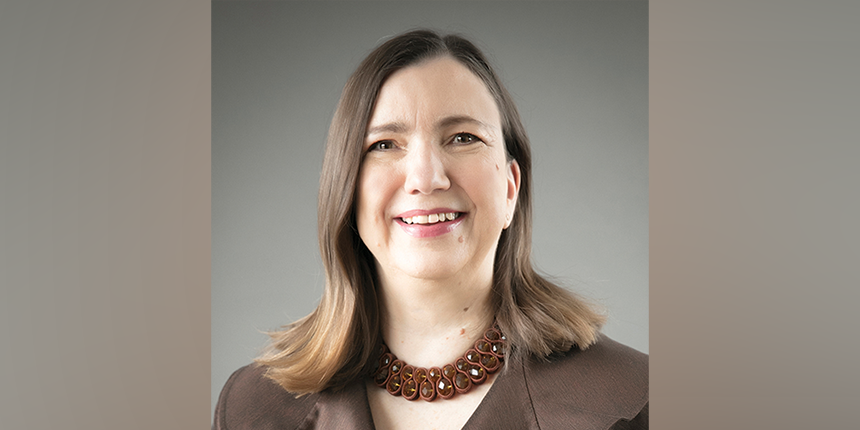

In May, Nancy Hill was inducted as Engineers Canada’s 81st President. Hill has been an active volunteer for the engineering profession, from contributing at various universities, STEM organizations, and with Professional Engineers Ontario, where she served as president from 2019-2020. She joined the Engineers Canada Board in 2020 and is President for the 2023-2024 term. She will guide the Board as it works on a number of priorities, including development of the 2025-2029 strategic plan. Engineering Matters sat down with Hill and discussed what she sees ahead for the term.
Engineering Matters: What is your goal as President this year?
Nancy Hill: I look to support each director to enable them to fully participate in the work of the Board and to bring their best self forward. Certainly, this means tackling the big challenges of the day such as progressing the next strategic plan. But it’s also the little things that nurture a culture of strategic, responsible, governance. Strengthening relationships through transparency and honesty. Listening to our colleagues around the Board table and beyond it. And doing the little things and the big things that make us a stronger, better, national federation.
I admire the work that my predecessor, Kathy Baig, did to see opportunities and to act on them. As I look ahead to the next year, I take this to heart.
EM: Now that you’re a few months into the role, what has been meaningful to you?
NH: The most enjoyable part so far has been the return of face-to-face meetings. But I am also pleased with the way we can incorporate hybrid meetings into the mix. I have had several positive, important learnings about running successful hybrid meetings, and the greater flexibility in our meeting approach does help us broaden our engagement.
EM: You’ll be president throughout the course of setting the 2025-2029 strategic plan. What has been notable to you about that process?
NH: I’ve been very pleased with the high level of engagement and interest from many stakeholders. In addition to the Board, the presidents and CEOs of the engineering regulators, chairs of CEAB and CEQB, and the chair of Engineering Deans Canada have all been deeply involved. While it is a long process, it is important that these different groups are involved. It’s also been very encouraging to see how ideas begin to crystallize into tangible priorities as we proceed through the different iterations.
EM: What changes have you seen in your time working with Engineers Canada and the Board?
NH: Throughout my time on the Board I’ve seen a vital shift taking place. It’s one where we are witnessing the regulators taking steps to leverage the unique position of Engineers Canada to move forward on the actions that help us best serve them. To move away from apprehension and toward collaboration. That’s why our current harmonization priority is so exciting. We’re building momentum; These are true opportunities to advance our vision.
And this continues into the Futures of Engineering Accreditation work. We are moving forward steadily, our stakeholders—like the deans and regulators—are engaged, and we’re witnessing the groundwork being laid for a generational shift in how engineering graduates become the engineers to whom we trust the future.
EM: What has contributed to your desire to be engaged with the evolution of the engineering profession?
NH: A key milestone for me was a conference in the mid-1990s. Monique Frize discussed how understanding the role of women in engineering was about more than just numbers. At that time Karen Savage spoke to the criticality of issues in retention.
Fast forward a few decades and these issues still needle us as a profession. These are foundational issues of culture. And culture change comes with deliberate and vigorous action.
And though we can listen to the experts tell us that progress on equity, diversity, and inclusion will inevitably arise because it will become a business imperative, are we willing to wait? How many phenomenal engineers will be lost to the profession because we stand by and await business forces to create the change that we all know is necessary?
We must effect cultural change, and that, by its definition is not a passive process. It is about active, sustained, and determined effort. How do we as a Board support that cultural change?
This will not happen in my single year as president. But if this incoming Board stays focused, makes good, informed, evidence-based and strategic decisions, and if the next Board does the same thing, the momentum will build and the profession will be one where anyone can feel a sense of belonging and activate their full potential.
EM: In a year, when you look back on your term, what will have made it a success in your eyes?
NH: I’ll look back with satisfaction knowing that we’ve put in place the 2025-2029 strategic plan and are on track to deliver on the priorities of the 2022-2024 strategic plan. Another measure of success for me will be to see that Board directors feel valued and engaged.


